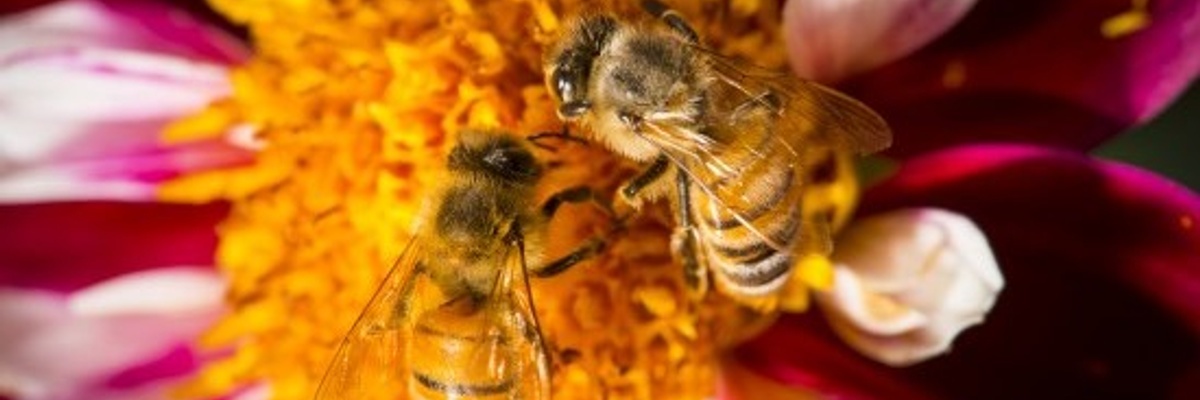

Whether you are a farmer of many acres, land manager of a large tract of land, or a gardener with a small lot, you can increase the number of pollinators in your area by making conscious choices to include plants that provide essential habitat for bees, butterflies, moths, beetles, hummingbirds, and other pollinators. Happy planting!
Whether you are a farmer of many acres, land manager of a large tract of land, or a gardener with a small lot, you can increase the number of pollinators in your area by making conscious choices to include plants that provide essential habitat for bees, butterflies, moths, beetles, hummingbirds, and other pollinators. Happy planting!
We now have three empty chrysalises on the fennel. Here's a freshly emerged swallowtail drying its wings today, you can see its chrysalis under it.
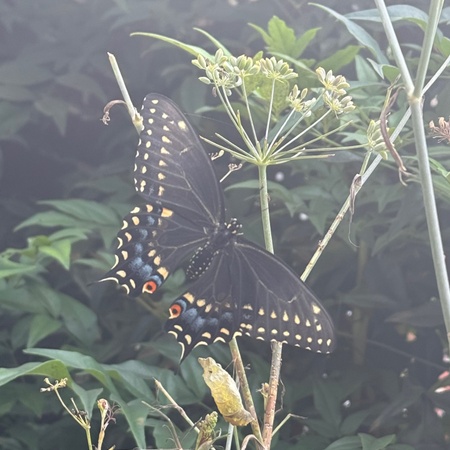
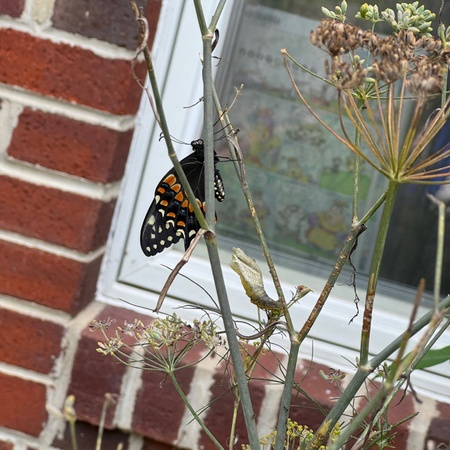
July 26, 2024
Three swallowtail caterpillars and one chrysalis are on the fennel today!
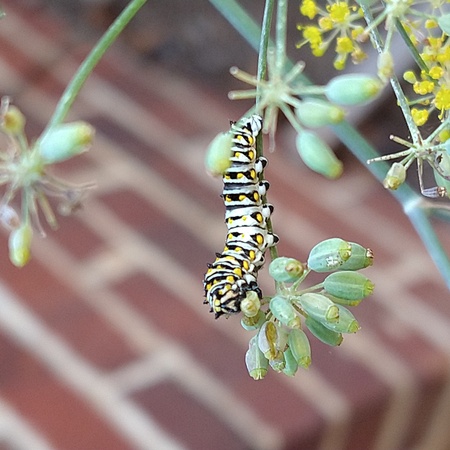
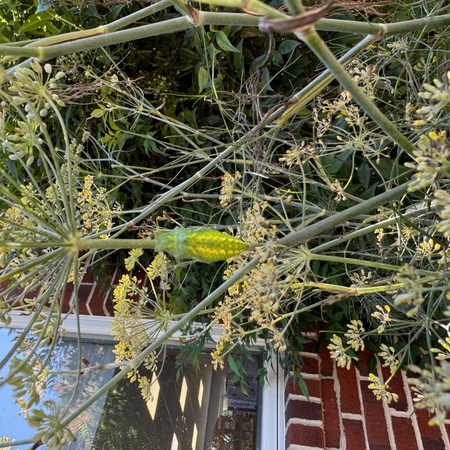
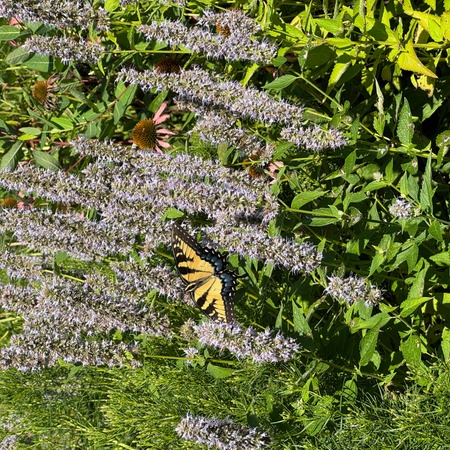
July 17, 2024
A milkweed conundrum... we grew swamp milkweed for several years because the flowers are lovely, the foliage is soft & delectable for monarch caterpillars and the plant doesn't spread by runners from the roots. But swamp milkweed is short lived - each plant lasts only a couple of seasons. So now we're growing common milkweed which lives for decades and spreads vigorously by runners. We will never need to replace our milkweed and the spread can be controlled by removing excess plants. But common milkweed foliage is thicker and it becomes leathery as summer progresses. When monarch caterpillars arrive in August, common milkweed foliage is really tough. The solution is to cut the stalks back by a third in July. This causes a flush of soft new foliage to appear just in time for the caterpillars. Also cutting back the stalks reduces their tendency to flop over as shown in the photo ;)
I also cut back the floppy fennel to get new foliage in anticipation of swallowtail caterpillars.
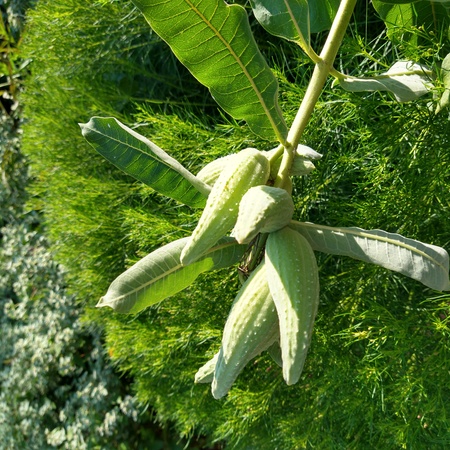
July 3, 2024
Hi ya honey! Honeybees have discovered the mountain mint.
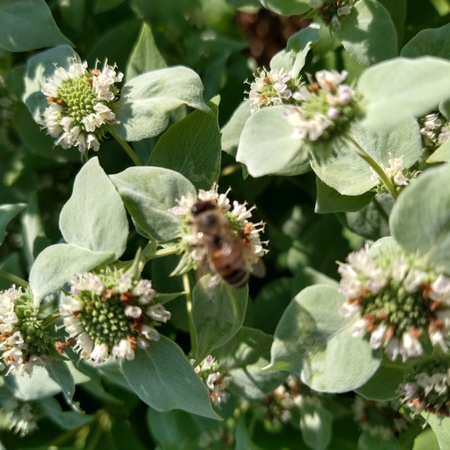
In other wildlife news, a fox likes the Nokesville library well enough to poop in the parking lot and claim it as his territory. The quantity of seeds in the scat suggests that he's been eating mulberries and wineberries.
Here's a bonus bumblebee...
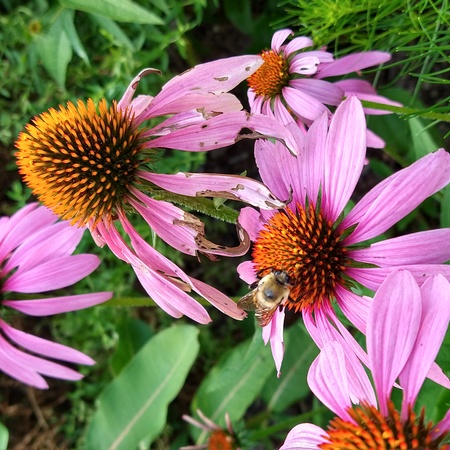
June 28, 2024
Where the pollinators are today...
A cloud of tiny native bees joined this butterfly on the mountain mint. Bumblebees are on the coneflowers and agastache.
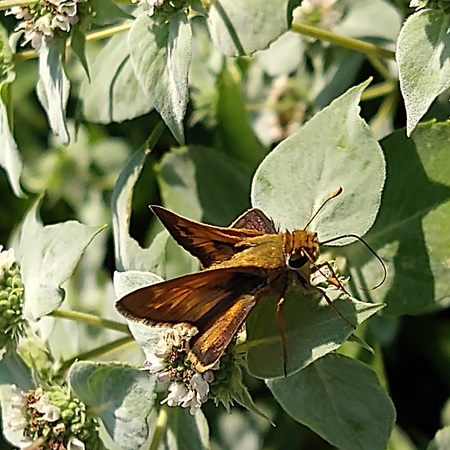
Too hot to work in the garden? For an indoor diversion take a look at The Humane Gardener's website (www.humanegardener.com). Nancy Lawson has posted a wide assortment of essays on backyard nature. If you enjoy her essays, she's also written a book titled "The Humane Gardener" which is available through the library system.
June 12, 2024
Where the pollinators are today...
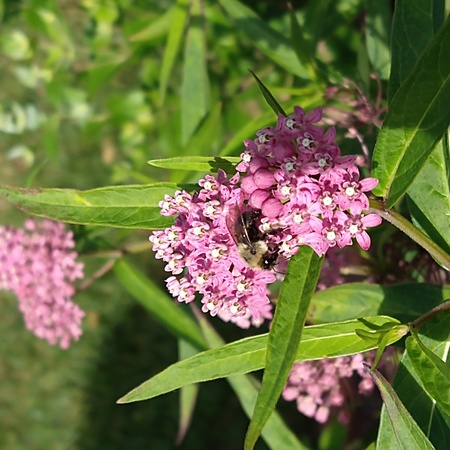
June 3, 2024
Where the pollinators are today...
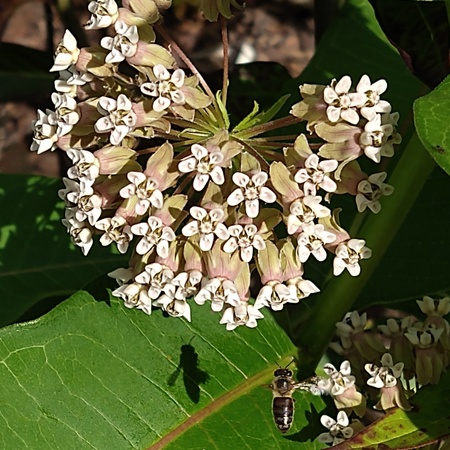
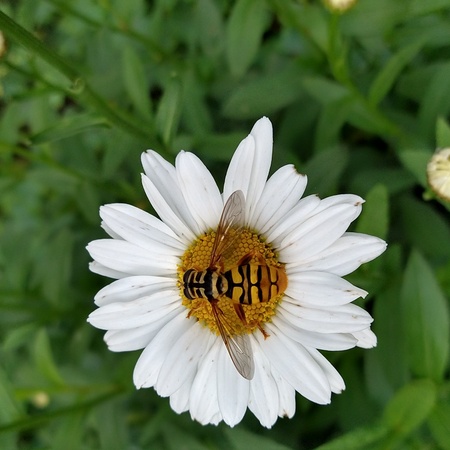
May 24, 2024
While browsing the stacks at Chinn, I happened upon "The Hummingbird Book" by John Shewey. Most bird books are identification guides: this one gives detailed information about the little guys. I learned that ruby throated hummingbirds can live a decade and the birds coming to our feeder are the same ones who came last year - during migration they follow the exact same routes year after year and return to the same territory. Cool! The book also includes profiles of tropical hummingbirds that resemble fanciful Dr. Seuss creatures. I will return this book to the Nokesville Library today so someone else can enjoy marveling at these small wonders.
May 20, 2024
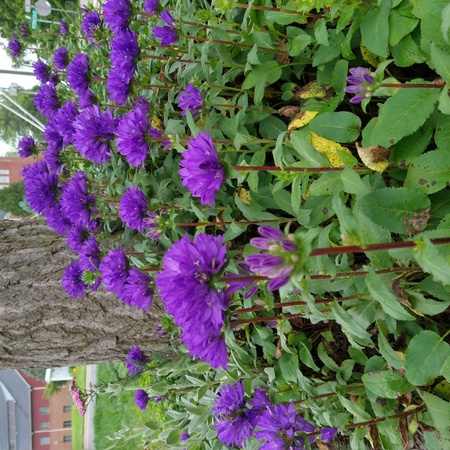
May 8, 2024
In the pollinator garden this week...
Achillea Coronation Gold is in bloom (photo below).
The foliage of our coneflowers is being eaten! A little sleuthing and crawling around scrutinizing the base of the plants led me to the culprit... the silvery checkerspot butterfly caterpillar. When pollinators love your garden so much that they eat the plants that's a high compliment! Don't worry about the coneflowers, they will refoliate. Their bloom cycle may be delayed a few weeks but the plants will be fine.
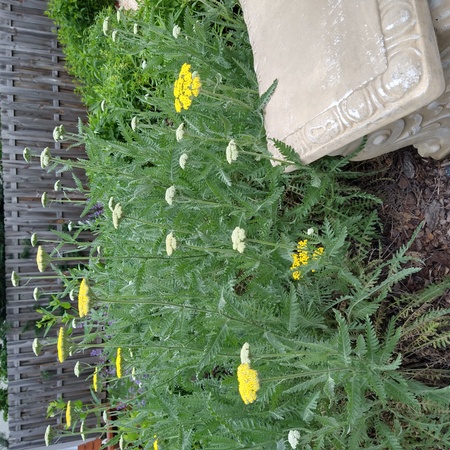
Update: June 28 and the coneflowers are blooming beautifully.
May 6, 2024
Murphy's Law has a gardener's corollary: "Spring storms always occur when the peonies are blooming." This year they're standing tall despite the rains since Rebecca and George placed supports around them.
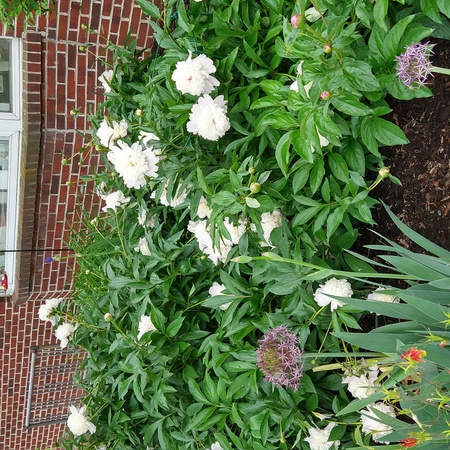
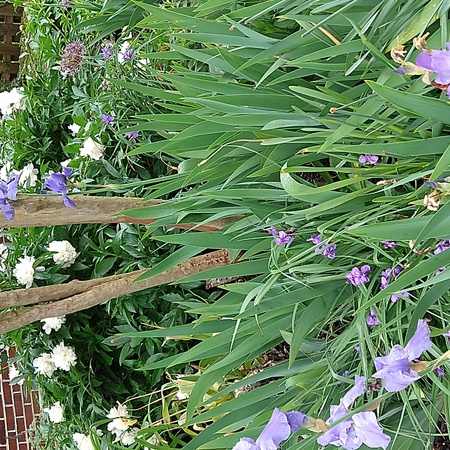
May 1, 2024
The bearded iris are in full bloom in the front garden and the peony buds are just beginning to open.
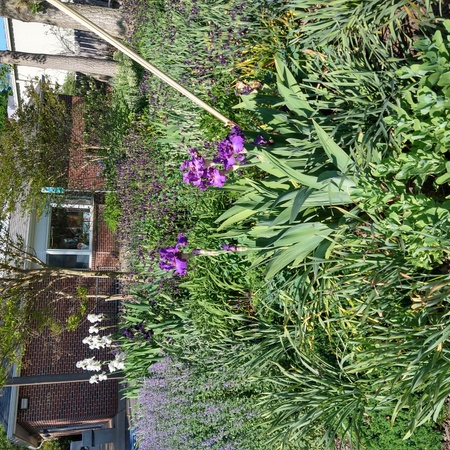
Here's a good read for a rainy day... messy gardens benefit our environment! If you haven't completed spring clean-up in your garden, you have permission to let it go.
https://washingtonpost.com/climate-environment/2024/04/23/how-make-bug-hotel-insect-decline-bees/
6 Participants
